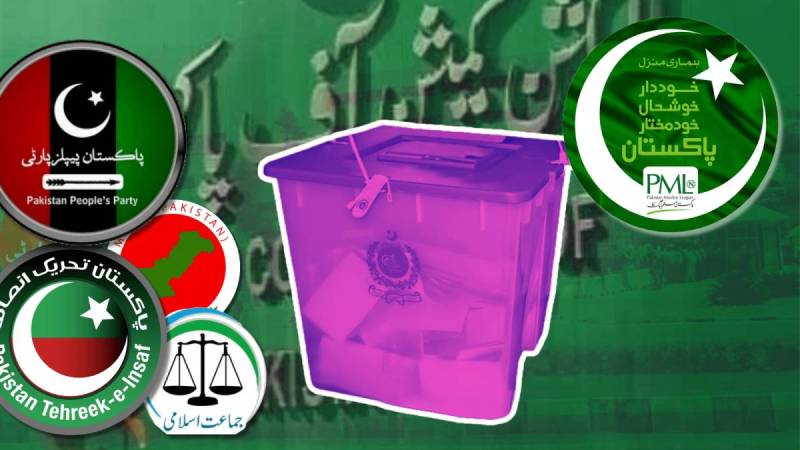
As the general elections in 2024 are approaching, politicians have speeded up their negotiations to make deals, and trying to convince kingmakers to become the nominees for the elections. They are also extravagantly spending their wealth to spur the funding of political parties and their electoral campaigns. Whereas, voters are euphoric to elect those whom they want. Ironically, there exists a small group that dictates the rules and the players of the game.
Will Durant contends that there exists oligarchy at the heart of democracy. This small group of elites owns the main cards in their hands. They decide the players in the corridors of power. Resultantly, the united elite minority rules over the divided majority on the lines of ethnicity, race, class, and ideology, leaving voters with no choice but to vote and live in a state of fool's paradise.
Since Pakistan’s inception, real power has never rest with the populace. Candidates are imposed over them. Perhaps, it deprives a poor of man the power to become a member of parliament. It is also one of the main reasons for the huge communication gap between voters and their representatives. Aspirants of the National Assembly first align themselves with a strong group within a political party that exerts influence in the decisions of concerned political parties. One can easily identify the strong pressure groups within the political parties of Pakistan. The aspirants give up certain powers in the hands of these groups to get allotted party tickets. They become bound to follow what the leading politicians of that group in particular and leaders of the party, in general, dictate them to do. Consequently, they lose some portion of their political freedom, making it difficult for an ordinary, loyal political worker to get an election ticket.
Perhaps, the aforementioned reality is due to the expensive nature of party organization. A common political worker cannot organize a party without sufficient resources and links with power corridors. Political parties depend on wealthy people for funding. It results in control and domination of political parties by the elite. They not only manipulate legislation process but also they nominate preferable candidates; secure contracts and appointments as their rewards of funding political parties.
Besides the influence of elites on political process, the role of undemocratic forces cannot be ignored. Everywhere in the world, hidden and deep political forces significantly impact elections. These forces are more apparent in Pakistan. Aspirants once nominated by political parties turn to undemocratic forces for support and favourable treatment in elections. And these forces decide the direction of political winds in the country. They have the power to mould the results in a direction they want - the unfortunate reliance of politicians on the non-democratic axis makes them key players of political processes. Candidates make certain commitments on different terms to be their favourites. Hence, they give their independence in the hands of these forces and once they are elected, they formulate policies which are not at odds with the interests of the establishment.
Then there comes the role of media houses in the nomination of candidates. In the age of post-truth politics, media manipulates the socio-political consciousness of voters. The media has the potential to influence the way people think and behave. Journalists are spin doctors who provide a suitable environment for their favourite candidates. They would present their favourites as rational, welfare centric and honest politicians while others as selfish, untrustworthy and incompetent. Different media houses support and promote the agenda of their preferred political parties. One has sufficient examples of how different media houses in Pakistan support their favourite political parties. These media houses provide an open field for their preferred candidates and political parties to reach out to people and promote their election agenda. They indoctrinate narratives in the minds of people to choose those whom the media wants them to. Thus, this deprives the people of any real power to choose their representatives.
The aforementioned influencers obstruct the potential of people to nominate candidates in the primaries. Nominated candidates are imposed over them by the elites. The elites evoke the pride of these voters by supplying illusions of their power. They take advantage of the nature of populace as emotional beings. The manipulation of minds is meticulously outlined by Will Durant when he says “Trickle a man pride and you may do anything with him.”
In a nutshell, there is the small group of oligarchs who decides the players of the game. And these players lose their freedom and independence in front of them. Boters are kept in dark and left with no choice but to vote for those which are imposed over them. That is why they are willingly kept unorganised and ill-informed. It also unfolds the unjust power dynamics, manipulation and the exploitation of common masses within the very structure of political process. To quote Emerson with a slight change, replacing the word ‘things’ with ‘fools’, in the quotation: “Fools are in the saddle and ride mankind.”

